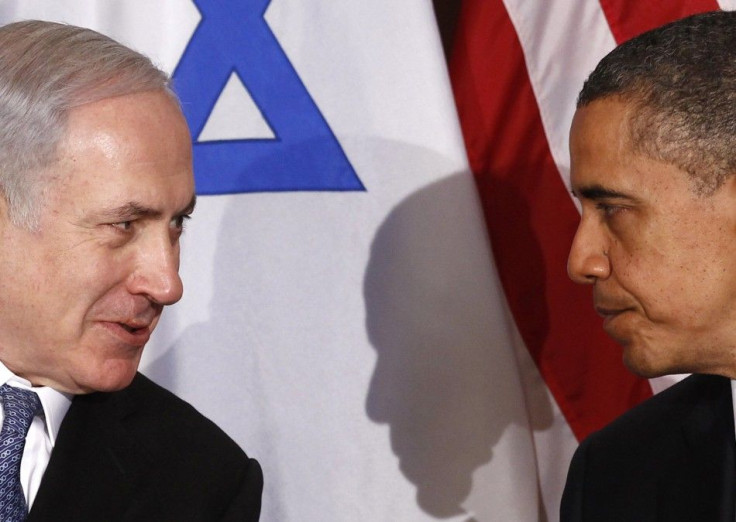Obama Talks Tough on Iran Ahead of Netanyahu Visit

Ahead of a key meeting with Israeli Prime Minister Benjamin Netanyahu, U.S. President Barack Obama has turned the heat on Iran and its nascent nuclear power program.
Obama told The Atlantic magazine in an interview that he seeks to resolve the Iranian nuclear issue once and for all.
Our argument is going to be that it is important for us to see if we can solve this thing permanently, as opposed to temporarily, Obama declared.
The only way historically that a country has ultimately decided not to get nuclear weapons without constant military intervention has been when they themselves take [nuclear weapons] off the table. That's what happened in Libya, that's what happened in South Africa.
Obama further indicated: I think the Israeli people understand it, I think the American people understand it, and I think the Iranians understand it.”
Describing his administration's moves against Iran, he said: It means a political component that involves isolating Iran; it means an economic component that involves unprecedented and crippling sanctions; it means a diplomatic component in which we have been able to strengthen the coalition that presents Iran with various options… and ensures that the IAEA [International Atomic Energy Agency] is robust in evaluating Iran's military program; and it includes a military component. And I think people understand that.”
However, Obama is concerned that a military strike on Iran by Israel might make Tehran more of a sympathetic figure to some countries.
At a time when there is not a lot of sympathy for Iran and its only real ally [Syria] is on the ropes, do we want a distraction in which suddenly Iran can portray itself as a victim? Obama wondered.
The President also reiterated his commitment to defending and protecting Israel and his complete rejection of a nuclear Iran.
I think that the Israeli government recognizes that, as president of the United States, I don't bluff, he said.
Both the Iranian and the Israeli governments recognize that when the United States says it is unacceptable for Iran to have a nuclear weapon, we mean what we say. Every single commitment I have made to the state of Israel and its security, I have kept. Why is it that despite me never failing to support Israel on every single problem that they've had over the last three years, that there are still questions about that?
Obama has described Iran’s atomic ambitions as a “profound” threat to Israel, which he characterized as “one of our strongest allies in the world.
In addition, the president is gravely concerned of a potential arms race erupting in the Middle East if Tehran develops atomic weapons.
You're talking about the most volatile region in the world, Obama said. The [danger] of an Iran getting nuclear weapons that then leads to a free-for-all in the Middle East is something that I think would be very dangerous for the world… In addition to the outrageous language that has been directed toward Israel by the leaders of the Iranian government -- if Iran gets a nuclear weapon, this would run completely contrary to my policies of nonproliferation… [the] risks of an Iranian nuclear weapon falling into the hands of terrorist organizations are profound.”
Obama added: “It is almost certain that other players in the region would feel it necessary to get their own nuclear weapons. So now you have the prospect of a nuclear arms race in the most volatile region in the world, one that is rife with unstable governments and sectarian tensions. And it would also provide Iran the additional capability to sponsor and protect its proxies in carrying out terrorist attacks because they are less fearful of retaliation.”
Meanwhile, Netanyahu –who has had a less-than-warm relationship with Obama -- will likely seek cooperation from Washington regarding its options on Iran.
© Copyright IBTimes 2025. All rights reserved.




















